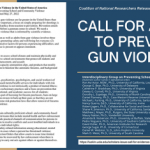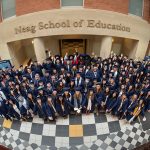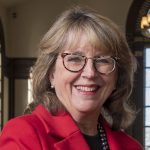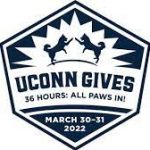While UConn’s unique Conservation Training Partnerships program has concluded its five-year run, the environmental projects it inspired and relationships it established continue to support Connecticut communities
The recent mass shootings across the country—and there have been 214 mass shootings in the first five months of 2022—are another painful reminder of failed efforts to stop the kind of gun violence that occurred at Sandy Hook Elementary School nearly ten years ago. An interdisciplinary group of scholars who have studied school safety and violence prevention for decades, including Professor Emerita George Sugai of the Neag School of Education, are calling for immediate government action to initiate scientifically-informed actions to reduce gun violence.
“The concern that I have is the temptation to just say that we’ve done enough, and we don’t have to worry about students in the traditional public schools, because if they don’t like it, they have another school they can go to,” Preston Green said.
Are charter schools like polluting industries? That’s a provocative analogy, but two University of Connecticut researchers explore it in a recent paper. They contend that, while some charter schools may help students, the sector needs stronger regulation to prevent harm to students and school districts. “I would argue that, even if there are benefits, that does not give you carte blanche to not regulate or mitigate the harms that occur,” Preston C. Green III, the paper’s lead author, told me.
For more than 50 years, the University of Connecticut Alumni Faculty Excellence Awards have served as an opportunity to recognize the outstanding contributions and achievements of the University’s faculty members to the institution, their current and former students, and their respective areas of academic discipline.
Elizabeth Zagata, Neag School doctoral candidate in the Department of Educational Psychology, prepared the following rapid research brief on superintendent relationships with school boards with the Center for Education Policy Analysis, Research, and Evaluation (CEPARE).
Hoeft also created the “B.R.A.I.N. Camp” reading intervention program with Devin Kearns, a professor of educational psychology in the Neag School of Education; and the highly successful “Ask a Brain Scientist” online series of hands-on science classwork used by hundreds of children registered from around Connecticut and elsewhere in the U.S.
Throughout the academic year, the Neag School is proud to share the latest achievements of its faculty, staff, students, and alumni. Explore their most recent promotions, awards, retirements, publications, and more: Dean’s Office Department of Curriculum and Instruction and Teacher Education Department of Educational Leadership Department of Educational Psychology Faculty/Staff Students Alumni In Memoriam Dean’s […]
Sally Reis, the Leticia Morgan Chair in Educational Psychology at the Neag School of Education, first connected to the University of Connecticut during her master’s program at Southern Connecticut State University in the mid-1970s. While in one class, she heard UConn Board of Trustees Distinguished Professor Joseph Renzulli talk about his work in educational psychology, specifically his internationally-known and pioneering work in gifted and talented with the Enrichment Triad Model.
Thanks to 494 individuals, the Neag School of Education garnered more than $25,000 in contributions during this spring’s annual Giving Day at UConn. The University-wide fundraising event raised over $504,000 in total for UConn in just 36 hours, with incoming donations set up to support everything from scholarships and academic programs to student groups and athletics. The Neag School, including its Alumni Board, promoted seven different education- and sport management-affiliated projects during this year’s Giving Day campaign, held over the course of two days in March.





